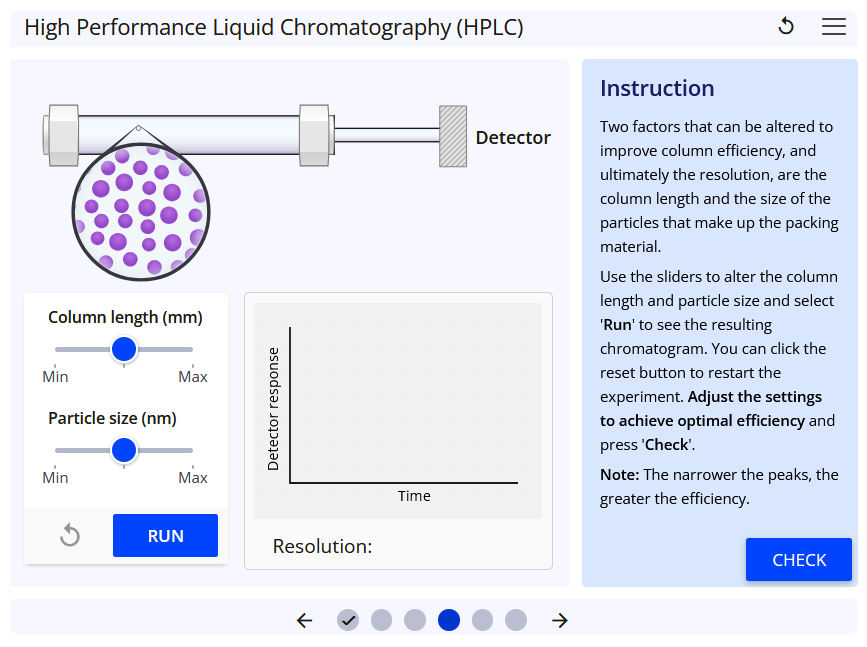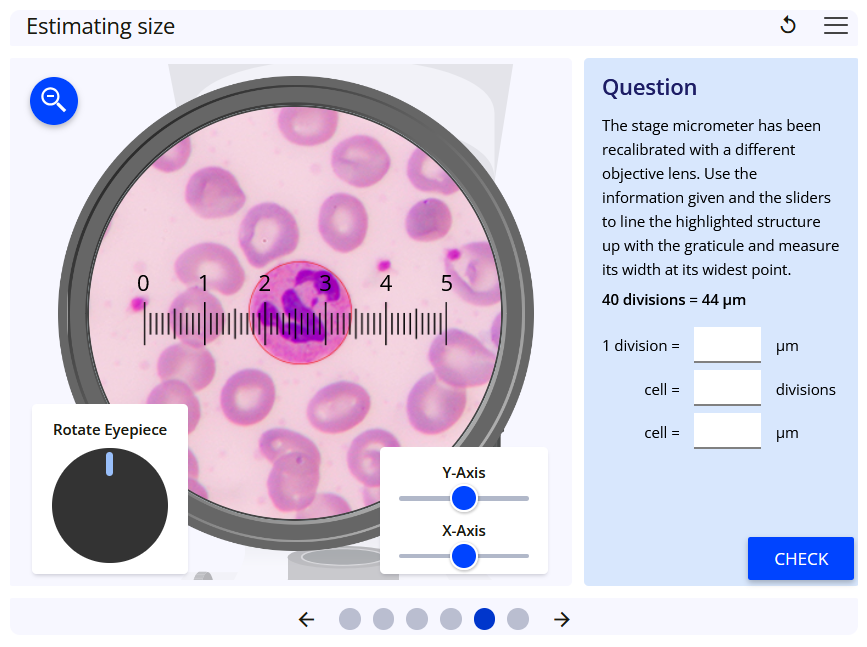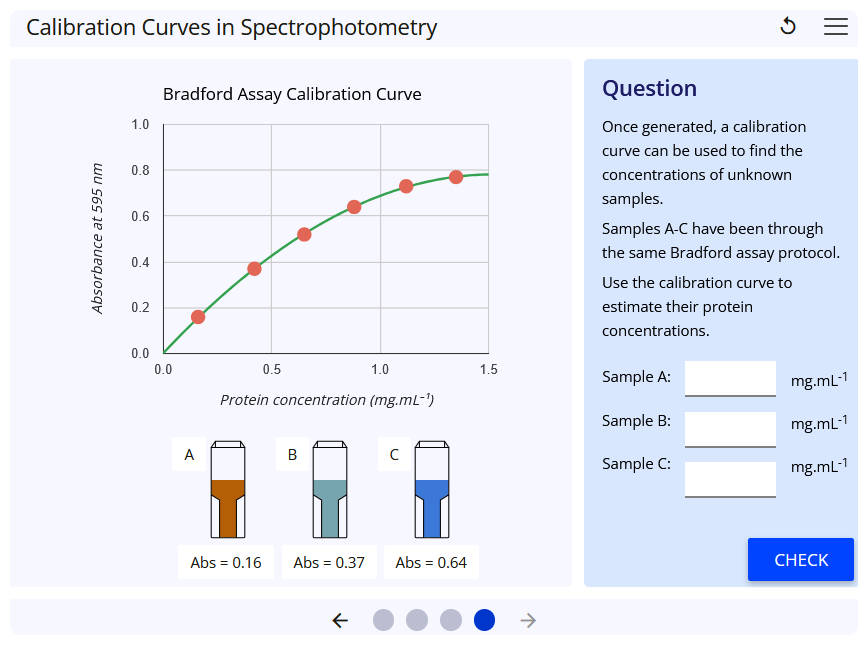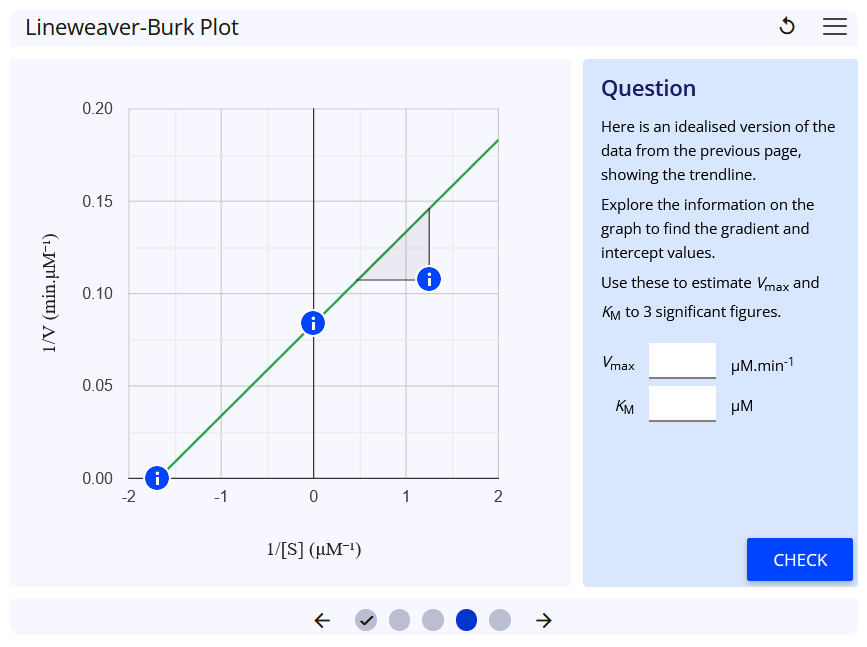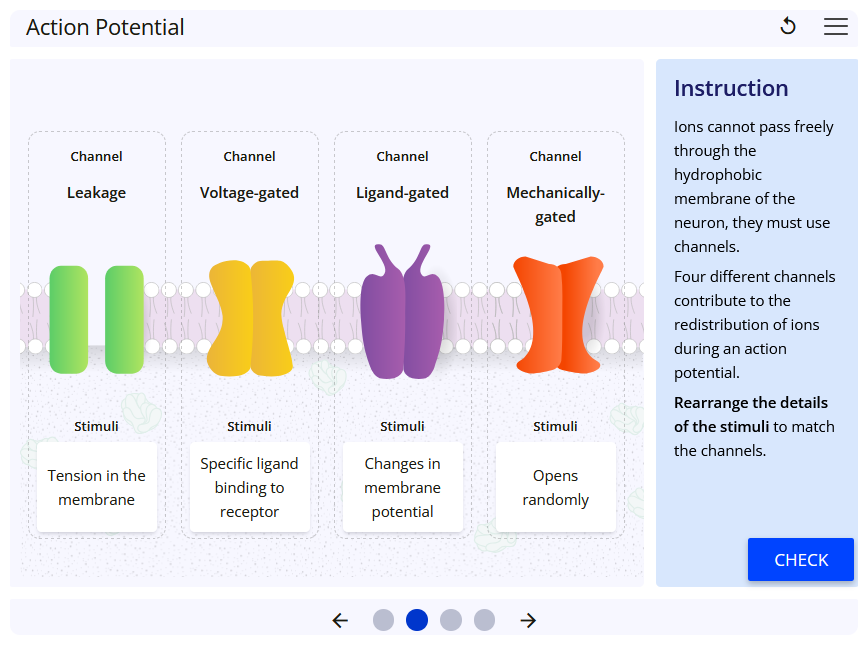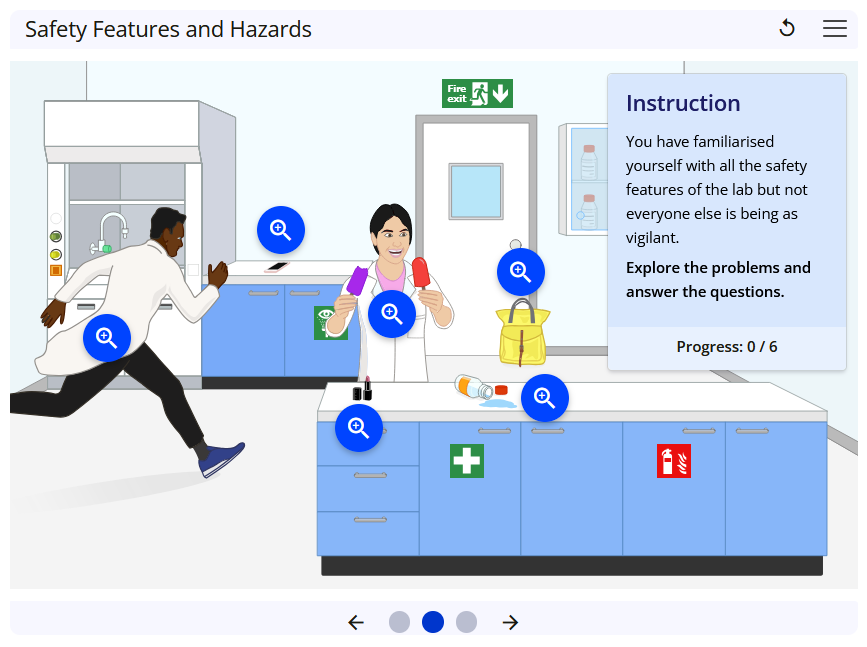Top level skills
As a result of our research, we’ve identified seven skills that students need to develop to support their practical competence.
Discover more about our identification processUsing Instruments and Equipment
Students who are able to use equipment successfully understand the techniques and associated instrumentation in a particular field. They can also explain the theoretical basis for a technique and its limitations.

Designing and Planning Experiments
Students who can successfully design and plan experiments are able to apply scientific principles and methodologies to address both theoretical and practical problems.
They are aware of the importance of including appropriate controls, as well as issues around possible bias, ethics and sustainability. They can plan independent investigations, and assess and report the significance of outcomes.

Obtaining and Recording Data
Students who are skilled in obtaining and recording data are able to apply a variety of methods of study to investigate and record information and data. They can demonstrate independent, accurate collection and recording of both qualitative and quantitative data.

Interpreting and Analysing Data
Students skilled in interpreting and analysing data can critically evaluate data to inform their conclusions and solve problems. They can make decisions based on data collected and use this to test hypotheses, contextualise their findings and consider further lines of investigation. They understand a range of methodologies, including the application of appropriate statistical methods and other analytical tools.

Manipulating and Presenting Data
Students skilled in manipulating data can choose and deploy the most appropriate mathematical and statistical processes or tools to evaluate, present and communicate their data in an appropriate format. Their presentation is informed by an understanding of the context of the investigation.

Concepts, Principles and Theories
Students successfully engaging with concepts, principles and theories are able to discuss and explain related scientific rules and laws. They are able to show evidence of enquiry around these and apply their understanding to solve well-defined theoretical and practical problems, and to evaluate data from these.

Working in a Safe Manner
Students undertaking laboratory or fieldwork need to understand the importance of establishing and maintaining safe working practices. They can describe, document and enact these practices by assessing, managing and mitigating risks, through knowledge-based risk assessments and practical activities. They can select the appropriate hazard control and reduction or elimination techniques in accordance with health and safety legislation.


